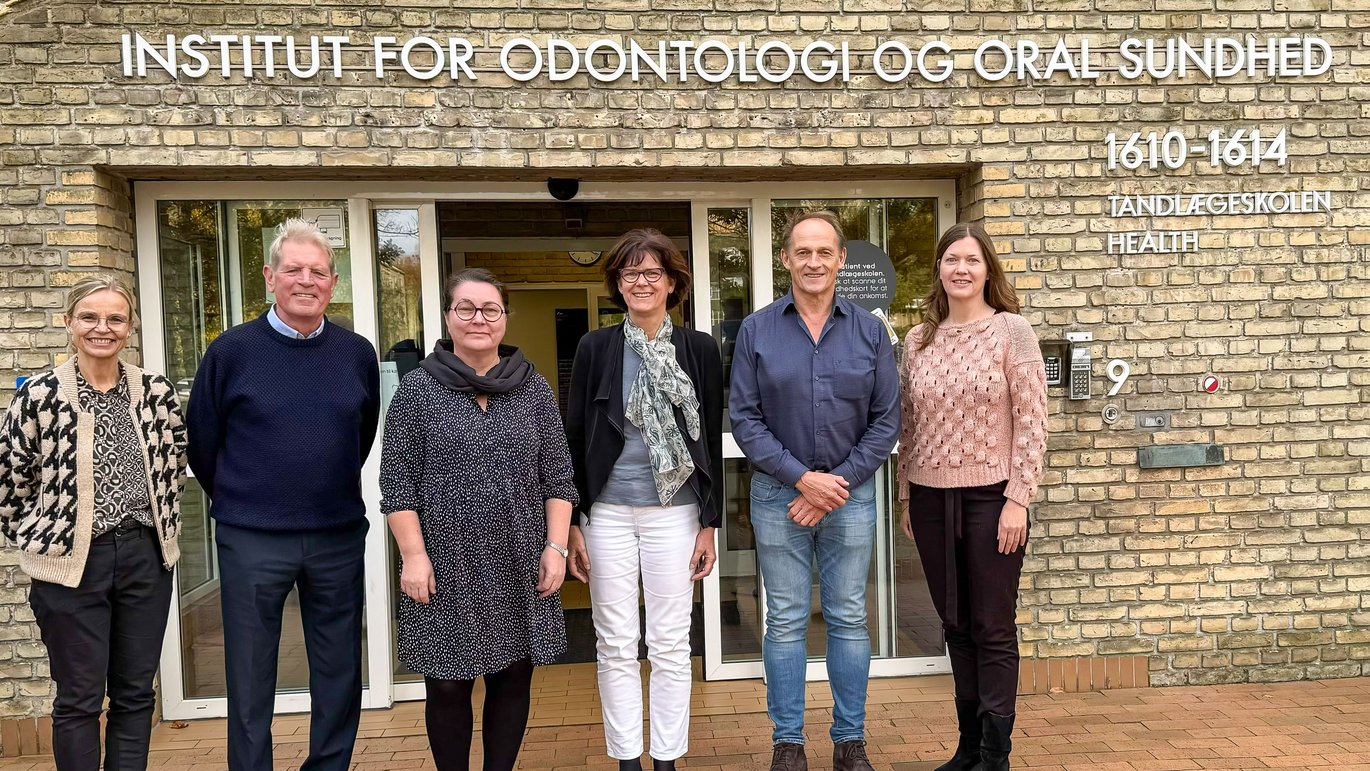Expert panel: strengthen the department's profile and impact
The Department of Dentistry and Oral Health was the fourth department at Health to receive a visit from an external evaluation panel who looked at the quality of research at the department. Read on to find out how it went.

How can we become even better?
Over the course of the next six months, an external panel will visit all departments at Health.
Heads of department must prepare an action plan based on the panel’s feedback.
The departments have set up their own external panels based on criteria from the faculty's steering committee for research evaluation – e.g. requirements regarding experience, academic breadth, impartiality, as well as balance in relation to gender, age and institutional diversity.
The members of the panels receive a comprehensive dataset and a self-evaluation report from the department in advance.
Panel visits
- 24 June - 25 June 2024 Department of Biomedicine (read about the visit here)
- 23 September - 24 September 2024: Department of Forensic Medicine (read about the visit here)
- 7 October - 9 October 2024: Department of Public Health (read about the visit here)
- 28 October - 30 October 2024: Department of Dentistry and Oral Health
- 27 January - 29 January 2025: Department of Clinical Medicine
Towards January 2025, all departments at Health will receive a visit from an external evaluation panel who will examine the development opportunities for research at the department.
This is part ofthe faculty's evaluation of the quality of research.
The Department of Dentistry and Oral Health had a panel visit at the end of October. In the following, Head of Department Siri Beier Jensen takes stock of the visit:
What do you want to highlight from the panel visit?
I’m impressed by how well-prepared and perceptive the panel members were, and how much they already knew about the department. They had input and requests for the process and the visit. For example, the panel suggested that they met separately with PhD students and postdocs/assistant professors, as the two groups work under different conditions. We had otherwise planned a joint meeting for all junior researchers.
Did some of the panel's feedback surprise you?
No, but it was eye-opening for me and others in the department to see how clearly others could identify what we have to work on. The panel identified areas we need to work on, and these are now clear to us.
The panel saw a potential to strengthen our clinical research, and the international experts were very interested in how we can work in a more interdisciplinary way at the department and with research units elsewhere in the faculty and university. They also stressed that more concerted faculty support is needed if we are to succeed in conducting more clinical and interdisciplinary research.
The panel also recommended that we adopt an even more focused approach to develop the department's profile and impact. The experts pointed out that we have the potential to attract larger and more grants and that we could publish fewer, but more impactful, publications.
They also proposed that, in future, we adopt a targeted political approach to obtain a so-called academic licence, i.e. a dental licence for non-EU international academic staff, so that they are entitled to practise as dentists for educational and research purposes at universities. Today, a Danish licence is required to independently provide patient treatment in clinical courses at the university. Obtaining the licence is both difficult and extremely time-consuming, and therefore it becomes an obstacle when recruiting talented international researchers and teaching staff, who in many cases are already specialists in clinical fields in other countries. An academic licence would remedy that problem.
Is there anything you disagree with?
No, actually not. The things they suggested we could do differently or strengthen were very meaningful, and this gives us both support and energy to continue our work.
What were you most pleased to hear?
I was pleased that they concluded that we have a good research environment and that it has an even greater potential. And I liked that they recognised that we are in a transition phase and are building something important. They also praised our work with junior career development, the well-being of our PhD students, and that we have a shared environment, where all our PhD students physically sit together.
What have you gained from the research evaluation so far – the department's self-evaluation and the panel visit?
I think it is a gift to get other people's perspectives on the department and our research, especially when it comes from such talented and competent people. The entire research evaluation process has given us good insight into where we can develop and which areas of our research we can usefully strengthen – to benefit the department and society.
What will be the process for the action plan you are about to make?
The members of the steering committee will now take the report to the strategic research areas and gather input for the action plan, so that all participants and researchers are involved in validating the final action plan, which we will then submit to the faculty.
Contact
Department Head Siri Beier Jensen
Aarhus University, Department of Dentistry and Oral Health
Mobile: (+45) 93 50 85 25
Email: siri@dent.au.dk